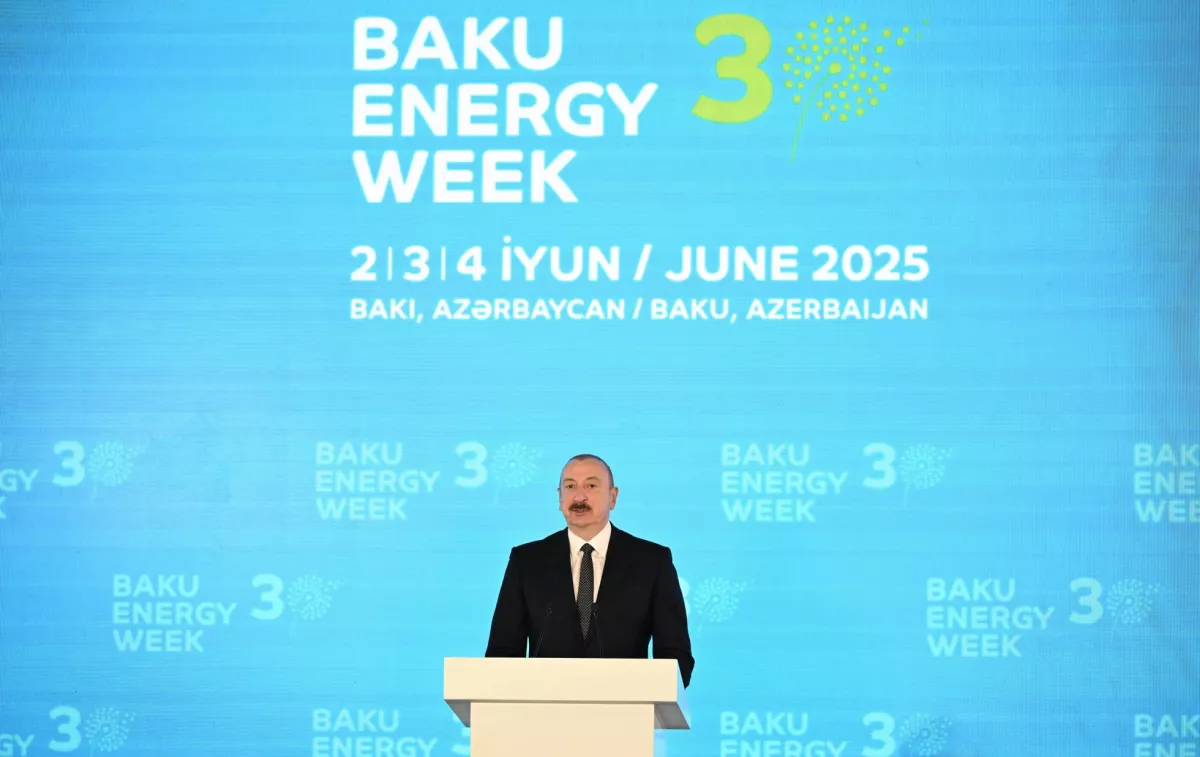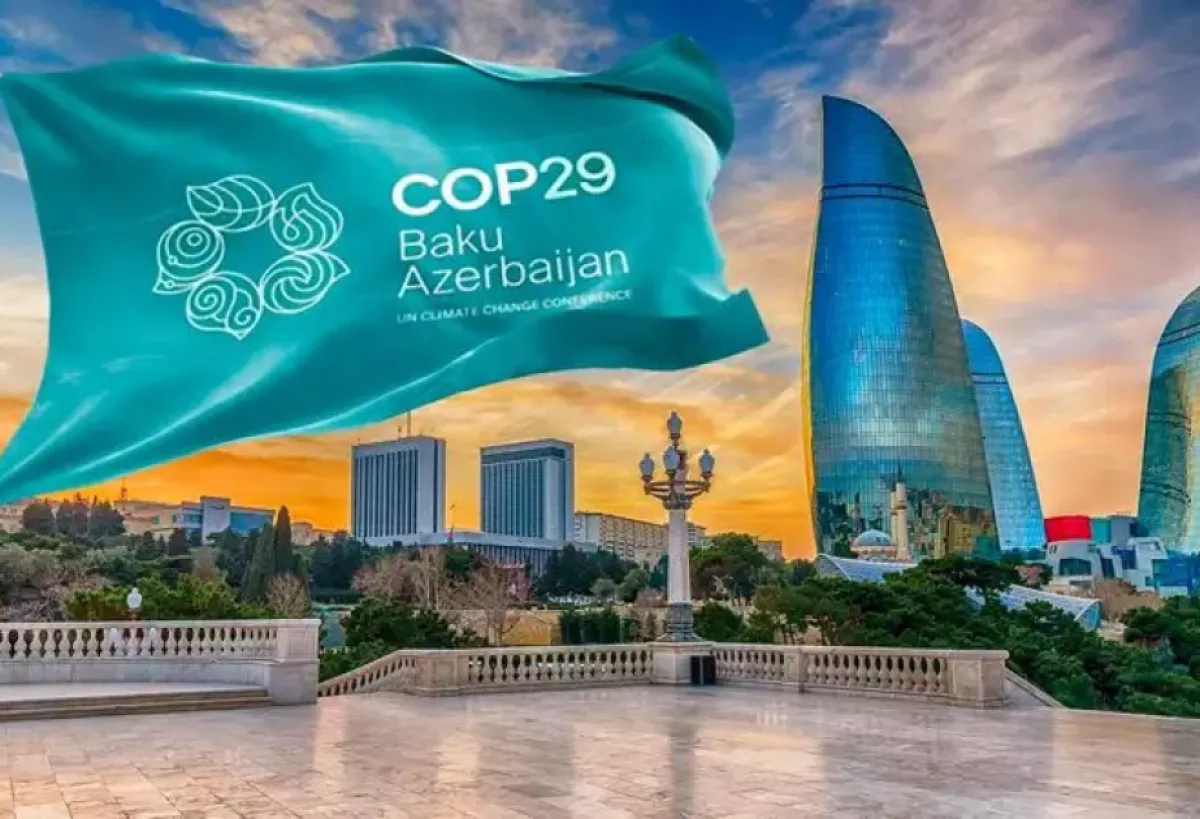Energy as leverage Baku “rewires” the map of influence
As part of Energy Week, which began on June 2, the 30th anniversary Baku Energy Forum was recently held at the Baku Congress Centre, bringing together leading industry experts to discuss key strategic issues.
The forum’s main themes included international cooperation in the development of Azerbaijan’s oil and gas industry, the expansion of natural gas and green energy supplies, and more.
Meanwhile, events are also taking place at the Baku Expo Centre as part of the 22nd Caspian International Exhibition “Transport, Transit and Logistics” — Translogistica Caspian.
All these events aim to promote Azerbaijan’s energy and transport priorities on the global stage and showcase the strategic potential of the Caspian region.
Baku Energy Week is recognised as the key event for the entire Caspian region’s energy sector. As a respected international platform, it annually brings together top leadership and leading experts to discuss major oil and gas projects in the region, as well as ensuring energy security for Europe and several other parts of the world.
The event also serves as a clear example of Azerbaijan’s successful journey in the energy sector over the past three decades, highlighting its growing international authority and forward-looking strategic approach.
At the dawn of its state independence, Azerbaijan—drawn into war due to Armenian aggression—was far from an attractive destination for foreign investors. The country faced economic collapse, hyperinflation, widespread poverty, and the burden of a million refugees and internally displaced persons, all of which hindered its steady development.
However, the visionary policies of national leader Heydar Aliyev, the signing of the "Contract of the Century," and the beginning of the development of the Azeri-Chirag-Gunashli (ACG) oil field complex, followed by other Caspian oil resources, opened the door to broad international cooperation. This transformed the energy sector into the cornerstone of Azerbaijan’s development, boosting not only the oil industry but also numerous other sectors of industry and services.
"Today, Azerbaijan is a country with a stable political system and a developing economy. The share of oil and gas in our GDP is something more than 30%. Azerbaijan is implementing large-scale economic reforms, and our economy is self-sufficient. Our foreign debt is less than 7% of GDP, and our financial reserves exceed our foreign debt by 14 times. We managed to reduce poverty due to the fair distribution of national wealth. Today, the poverty level is around 5%. We invested largely in human capital and education, and the level of literacy is close to 100%," stated Azerbaijani President Ilham Aliyev during the official opening ceremony of the 30th anniversary Caspian Oil and Gas exhibition.

The president noted that Azerbaijan’s oil and gas projects have completely reshaped the energy map of Eurasia. At the same time, the country maintains a balance between natural gas production and “green” energy. Baku is increasing its output of “blue” fuel while simultaneously attracting investors to renewable energy projects.
Equally significant are Azerbaijan’s efforts on the global environmental front, under the so-called “Baku Breakthrough.” For example, last November, during the UN climate conference COP29, a special financial package was established for Small Island Developing States (SIDS). Funding for developing countries was increased from $100 billion to $300 billion, a carbon market was launched after more than ten years of negotiations, bridges were built between the Global South and Global North, and more.

For nearly three decades, Azerbaijan’s consistent approach to energy cooperation and its role as a reliable guarantor of energy security have been welcomed by partners in the EU, the United Kingdom, and the United States. Just as traditional has become the support and official greetings from Western leaders to participants of the Caspian Oil & Gas exhibition.
This year, U.S. President Donald Trump and Turkish President Recep Tayyip Erdoğan addressed messages to the attendees of the exhibition and other Baku Energy Week events. The importance of Azerbaijan’s role in international oil and gas cooperation—as well as in the development of green energy—was also underlined in speeches by Cristina Lobillo Borrero, Director for Energy Policy at the European Commission, Sophie Westlake, Head of International Energy at the UK Department for Energy Security and Net Zero, and OPEC Secretary General Haitham Al Ghais.
These trends now lie at the heart of Azerbaijan’s long-term development strategy. New avenues of cooperation with international partners were a key focus at the 30th anniversary Baku Energy Forum, which opened on June 3 as part of Baku Energy Week. The event gathered more than 600 delegates, including leading industry figures from Europe, the United States, Japan, China, the Middle East, and Africa. A total of 74 speakers are set to take part in high-level strategic discussions.
The forum’s sessions are of great importance in terms of introducing innovations in the energy sector, strengthening regional and global cooperation, and building resilient and flexible energy systems. The plenary session began with a discussion on “Global Cooperation for a Resilient and Sustainable Energy Future.” Subsequent panels covered a range of topics including sustainable energy ecosystems, digitalisation in the energy sector, the application of innovation in geological exploration, enhancing field development through sustainable innovation, the development of green energy in the Caspian region, cooperation in gas markets, and the role of pipelines in strengthening energy security.
On 4 June, the anniversary Baku Energy Forum will host globally renowned expert in international business, Swedish economist and futurist Kjell A. Nordström. Making his first-ever appearance in Azerbaijan, Nordström will share his insights on the future of the global economy, the transformation of energy markets, and game-changing innovations.
As is tradition, the Baku Energy Forum will also feature bilateral business meetings in B2B and B2G formats, where representatives of local and international companies will openly discuss future modes and frameworks for cooperation and partnership.
As part of the forum, a series of meetings and negotiations took place, resulting in agreements across various segments of the energy sector. Key discussions focused on the development of infrastructure for the supply of natural gas and renewable energy from Azerbaijan to Europe.
“Azerbaijan is on the brink of a new phase in the development of its gas industry and remains a reliable energy supplier. Today, we are entering a new stage of gas resource exploration, implementing five major projects,” noted Azerbaijan’s Minister of Energy, Parviz Shahbazov. “During Baku Energy Week, important agreements are being advanced — including TPAO’s participation in the Shafag-Asiman project, a contract with ExxonMobil for oil and gas development, and further deals with MOL, ITOCHU, and Gran Tierra Energy. All of this marks significant progress in our efforts.”
During the forum, it was revealed that XRG, a subsidiary of Abu Dhabi’s National Oil Company (ADNOC), is considering increasing its investments in Azerbaijan. XRG is currently partnering with SOCAR and TotalEnergies in the development of the Absheron gas condensate field and is in discussions with SOCAR regarding new projects, with hopes for concrete progress in the coming months.

The leading operator of oil and gas projects in Azerbaijan — BP — has also reaffirmed its commitment to a sustainable energy transition in the Caspian region. “We are increasing our investments in upstream projects to $10 billion by 2027. At the same time, we want to be sure that we are reducing emissions in the environment,” said Gary Jones, BP’s regional president for Azerbaijan, Georgia, and Türkiye, speaking at the Baku Energy Forum. He stressed that BP is actively balancing the development of traditional oil and gas projects with significant investments in decarbonisation and renewables. Notably, the company is focusing on integrating renewable sources like the solar panel project in Jabrayil, which will support the decarbonisation of the Sangachal terminal.
Among other key topics, the Baku Energy Forum addressed the integration of the "Green Energy Corridor – Caspian-Black Sea-Europe" initiative into the Ten-Year Network Development Plan (TYNDP) of the European Network of Transmission System Operators for Electricity (ENTSO-E). Discussions also focused on the development of cable infrastructure for transmitting green electricity along the Azerbaijan–Georgia–Türkiye–Bulgaria and Central Asia–Azerbaijan routes. Additionally, Azerbaijan’s Ministry of Energy and TotalEnergies reviewed plans to build a 250 MW wind power plant in the country, establish energy storage systems, supply green energy, and reduce methane emissions.
These days, alongside the energy forums at the Baku Expo Center, the 22nd Caspian International Transport, Transit and Logistics Exhibition – TransLogistica Caspian – is also taking place. Against the backdrop of rapid shifts in global trade routes and mounting transport challenges, Azerbaijan is playing an increasingly pivotal role as a key transport hub of Eurasia. In January 2025, during a dedicated meeting on transport issues, President Ilham Aliyev highlighted the need to address problems related to the development of transport infrastructure and the optimisation of transit corridors.
In this context, international industry exhibitions have gained even greater significance. TransLogistica Caspian now serves as a vital platform for showcasing and discussing modern solutions in the transport sector. The event will focus on Azerbaijan's integration into international transport corridors and offer unique opportunities for business development within the frameworks of the Middle Corridor and China’s Belt and Road Initiative. A packed business programme includes B2B and B2G meetings with local and foreign companies, along with thematic events and panel discussions such as “Developing Infrastructure for Electric Vehicles in Azerbaijan,” “Digitalisation of Railway Transport,” and “Multimodal Transport in the Caspian Region: Prospects and Challenges for Efficient Logistics.”








